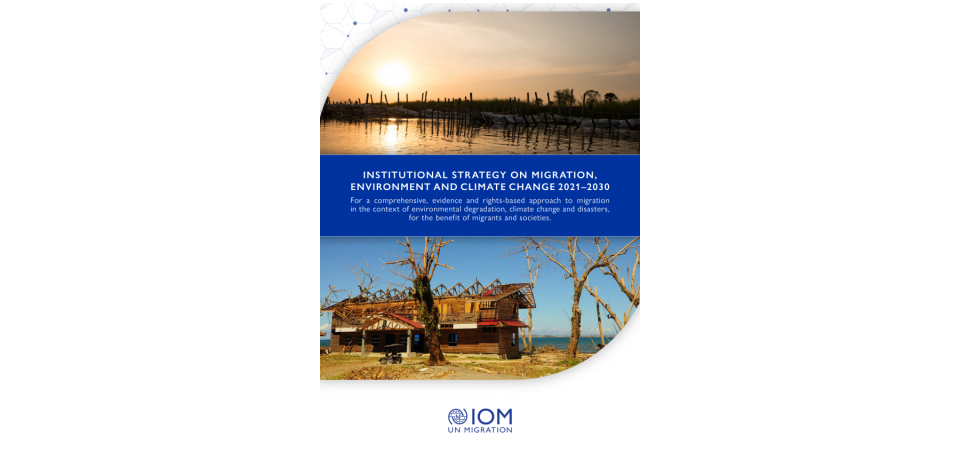IOM Institutional Strategy on Migration, Environment and Climate Change 2021–2030
Objetivos de Desarrollo Sostenible Relacionados y Objetivos del Pacto Mundial sobre Migración
For a comprehensive, evidence and rights-based approach to migration in the context of environmental degradation, climate change and disasters, for the benefit of migrants and societies.
The IOM Institutional Strategy on Migration, Environment and Climate Change aims to guide IOM efforts to strengthen its capacity to develop and implement a comprehensive approach to migration in the context of climate change, environmental degradation and disasters due to natural hazards, in line with the objectives of the 2030 Agenda on Sustainable Development, the Paris Agreement on Climate Change, the Global Compact for Safe, Orderly and Regular Migration, the Sendai Framework for Disaster Risk Reduction and the Nansen Agenda for the Protection of Cross-Border Displaced Persons in the Context of Disasters and Climate Change. Moreover, the Strategy emphasizes that IOM approach on this issue is anchored in human rights norms and principles, and relevant across the Humanitarian, Development and Peace Nexus.
The Strategy highlights IOM commitment to support the development of enabling environments that can help migrants, diasporas and their communities directly contribute to climate action and sustainable development in places of origin and destination.
As part of the IOM Strategic Vision 2019–2023: Setting a course for IOM and in order to achieve these objectives, the IOM Institutional Strategy on Migration, Environment and Climate Change aims to take stock of existing knowledge and establish institution-wide priorities and processes, in line with the three pillars articulated in the IOM strategic vision: resilience, mobility and governance.
